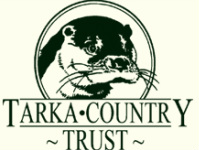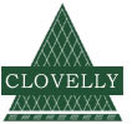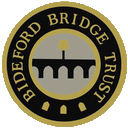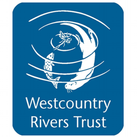Boat Stories Films: Lobster Potting & Berried Hens
with Geoff Huelin
Here it is! The first in the Boat Stories series of 10 short films. Watch it to find out what a berried hen is - and please share it!
Filmed & edited by Simon Vacher. Music by Ben McCabe. Directed & produced by Jo Stewart-Smith
Filmed & edited by Simon Vacher. Music by Ben McCabe. Directed & produced by Jo Stewart-Smith
Video blog on the making of and story behind lobster potting & the berried hens
|
|
We
were filming the first string of pots being hauled aboard, just outside
Ilfracombe harbour, when suddenly the boat juddered as the rope stuck
fast on the winch. The string had caught on an old anchor. Eventually skipper,
Geoff Huelin, produced a serious knife and cut us free. It took about forty
minutes for the crew to rope a new set of pots together and for Geoff it meant
lost gear before we’d started. “Nothing goes to plan on these trips,” he told
us “there’s often some horror story.” We filmed this and edited it into a short
scene, but our film is only five minutes long, so in the final, cruel cut – it
hit the cutting room floor (see outtake.) Please watch our film: lobster potting & berried hens – if
you haven’t already – it’s only five minutes and much more exciting than
reading this -then come back to this page if you’d like to see more
outtakes and hear more about the making of this film and Geoff and Sarah’s
conservation work.
|
Through April and May when the whelking season overlaps with
the first lobsters on the move, Geoff is out at sea most days, on 12 hour
shifts, ruled by the tide. So I was lucky to catch this quietly spoken,
unassuming fisherman in harbour. Geoff told me how he learned to pot on his
father’s wooden boat in Mortehoe in the school holidays and then went into
lobster fishing straight from school. When
I prized out of Geoff that he was one of the local fishermen who agreed to and
actively supported the setting up of the no take zone around Lundy Island, I
knew I wanted to film his story. Boat Stories couldn’t afford to charter a potting boat – and
anyway we wanted to see lobster fishermen at work –so I was hugely grateful
when Geoff generously agreed that we could come aboard with a camera and
witness a normal working day. A normal day means twelve strings of pots (35
pots each) to be hauled, baited and shot - so after getting hitched on the
anchor, Geoff was worried that (despite our dawn start) we wouldn’t finish
before dark.
|
The first thing that struck Simon Vacher (on camera) and me was how hard the crew worked. The pots were hauled in at lightning speed with Geoff and brothers, Chris and Kirk Knight working as a team, each knowing their exact moves – like a choreographed dance. The second thing was how much seafood got thrown back – alive. Not just the smaller lobsters and crabs, but starfish, lesser spotted dogfish, even a sea bass, “not what we’re after” said Geoff, when I asked why he didn’t take it home for the pan. Geoff is a huge supporter of the aquarium (on Ilfracombe harbour) so he kept an interesting sponge he found back for them. Even when the boat was on auto pilot, Geoff didn’t stop working: checking charts, filling in records, making flags for the pots “makes it easier for the yachts and charter boats to spot them”, repairing the hooks for the ‘gates’ on the pots with deft fingers.
|
Kirk Knight cleaning the boat
|
But Geoff found time to point out the birds, a young gannet here, a razorbill there. (Kirk tried to tempt a gannet closer to the boat, but it rejected our salted bait and went off hunting for a trawler landing fresh fish.) A few days after we got back, Geoff texted me to say they’d had dolphins riding the bow wave all the way to Lundy and spotted two minke whales. That shot of him sitting down with his cup of tea, that was a first. That was Boat Stories, on the way home, persuading him to sit down and reflect on what his job meant to him.
Boat Stories did have another influence on that day. When Geoff told me that he really enjoyed days out with scientists, researching lobsters in the no take zone around Lundy, we decided to invite Sarah Clark from Devon & Severn Inshore Fisheries & Conservation Authority (IFCA) along. The official no take zone, set up with the support of fishermen like Geoff, was the first in the country. No take – means what it says on the tin: potters, fishers, anglers, divers – no-one can remove anything from the zone. Although Lundy’s no take zone is tiny, about a kilometre wide and three and a half kilometres long, its impact has been huge. It was crucial in setting up the marine reserve around Lundy. So North Devon led the way in marine conservation: for many years, Lundy was the first and only marine reserve in England and the area around the island eventually became England’s first marine conservation zone. Sarah's research team were among the first to find “lobster larvae swimming in the plankton. From each spawning of up to a million eggs, maybe only a handful makes it to adult hood.” Lundy’s marine reserve has become a magnet for researchers looking at the benefits of protecting an area from fishing – not just for lobsters, but for a huge variety of species. Geoff added “tourism, the charter boats and the diving boats have all benefited so the reserve has been a win-win all round.”
Boat Stories did have another influence on that day. When Geoff told me that he really enjoyed days out with scientists, researching lobsters in the no take zone around Lundy, we decided to invite Sarah Clark from Devon & Severn Inshore Fisheries & Conservation Authority (IFCA) along. The official no take zone, set up with the support of fishermen like Geoff, was the first in the country. No take – means what it says on the tin: potters, fishers, anglers, divers – no-one can remove anything from the zone. Although Lundy’s no take zone is tiny, about a kilometre wide and three and a half kilometres long, its impact has been huge. It was crucial in setting up the marine reserve around Lundy. So North Devon led the way in marine conservation: for many years, Lundy was the first and only marine reserve in England and the area around the island eventually became England’s first marine conservation zone. Sarah's research team were among the first to find “lobster larvae swimming in the plankton. From each spawning of up to a million eggs, maybe only a handful makes it to adult hood.” Lundy’s marine reserve has become a magnet for researchers looking at the benefits of protecting an area from fishing – not just for lobsters, but for a huge variety of species. Geoff added “tourism, the charter boats and the diving boats have all benefited so the reserve has been a win-win all round.”
|
Sarah Clark from Devon and Severn IFCA
|
That might have been our story – but
the great thing about filming documentaries is that if you find a more
interesting story – and get it on film, you can run with it. Out on the
boat, the female lobsters carrying eggs, began to emerge as characters in
their own right. You can spot a female
“for her wide, egg-bearing hips – the male’s tails are a lot narrower,” and with
their brilliant, electric blues and lilacs, they’re beautiful. We learned from Geoff and
Sarah that Devon is once again helping to lead the way in marine conservation, with several byelaws to protect lobsters and promote a sustainable
fishery. Sarah explains these byelaws on this outtake. This clip hit the floor
partly because we want our films to stand the test of time and the byelaws for
different areas are constantly changing, some areas have them -others don't. Cornish fishermen for instance also put berried hens back in the sea. Devon & Severn IFCA is currently lobbying to close a loophole: fishermen (fishing
in Devon waters) can say they landed their berried lobsters outside the six
nautical mile limit (IFCA's jurisdiction) and keep them.
|
When Geoff fished as a boy, all they had was a compass and
his father’s knowledge of the ground and the dangerous ten metre tide. Laughing,
his sister Sally told me, “the whole family used to go out in a mini, bumping
over a dirt track, in Mortehoe, to help my father haul the little wooden boat
up the cliff, out of reach of the tide.” If the mini got stuck, the children’s job
was to jump on the bumper and bounce it free. (Geoff’s sisters Cath and Sally are
selling crabs and lobsters from the shellfish van and fish shop in Mortehoe.) Over the years, Geoff has built up detailed
charts of where the best lobsters are caught. He’s careful not to overwork an
area – not to shoot pots more than once a year. So he’s managing the ground a
bit like a farmer – except of course that with the common fisheries policy this
ground is open to anyone. Geoff is very supportive of his fellow North Devon
fishermen with their relatively small potting boats. His one worry is that with
the trawlers facing so many restrictions, too many fishermen could turn to
potting or giant industrial crabbers could move into the area. But for the moment as he says on camera, “providing
the berried lobsters are put back and it’s managed sensibly, there’s a living
for everybody.”
Although Geoff was happy to let us film on the boat, he was less confident about doing an interview to camera, to tell his story for this film. At one point on the boat, we began filming a ‘piece to camera.’ It started well –and then I asked Geoff another question. He looked away and said, “It’ll be embarrassing if the boat runs aground” and we were left with an empty frame. I don’t blame Geoff – I hate being on camera. But as my day job, I write voice-overs for documentaries - so for Boat Stories, I’m really keen that the people we film tell their own story – in their own words. Because of the boat engine noise, we weren’t able to use all the sound from our day on the boat, but we returned and spoke to Geoff in the busy working harbour with a background of welders, boats, cars and seagulls. As you can see from the film, Geoff was brilliant. Hopefully – we’ll be able to work like this for all our stories.
Don’t forget to watch and share the film!
Although Geoff was happy to let us film on the boat, he was less confident about doing an interview to camera, to tell his story for this film. At one point on the boat, we began filming a ‘piece to camera.’ It started well –and then I asked Geoff another question. He looked away and said, “It’ll be embarrassing if the boat runs aground” and we were left with an empty frame. I don’t blame Geoff – I hate being on camera. But as my day job, I write voice-overs for documentaries - so for Boat Stories, I’m really keen that the people we film tell their own story – in their own words. Because of the boat engine noise, we weren’t able to use all the sound from our day on the boat, but we returned and spoke to Geoff in the busy working harbour with a background of welders, boats, cars and seagulls. As you can see from the film, Geoff was brilliant. Hopefully – we’ll be able to work like this for all our stories.
Don’t forget to watch and share the film!
|
Because we spent all day filming ON the boat, we didn't have a shot of the boat at sea. So Simon returned early one morning and got this shot of 'Our Jenny' leaving beautiful Ilfracombe harbour. On days like these you can see why Geoff loves his job.
|
You can buy North Devon crabs and lobsters from Jenny Huelin 01271 867206 or dressed from Cath and Sally from the Mortehoe shellfish van or Mortehoe fish shop 01271 870633 or see our fish page for suppliers of locally landed fish and shellfish.
Huge thanks to Geoff & Jenny Huelin, Chris & Kirk Knight, Cath & Sally Huelin and Sarah Clark for being so patient with and generous to Boat Stories. To Ben McCabe for the music. To our main funder, Northern Devon FLAG and all our funders (listed at the bottom of this page) and supporters and to Amanda McCormack from North Devon Moving Image for hosting our series of films. To Sam and Keith for lifejackets. And of course to brilliant, easy to work with, ready for anything, cameraman and editor Simon Vacher who got the footage despite being horribly seasick! Jo Stewart-Smith 29/06/14 |












